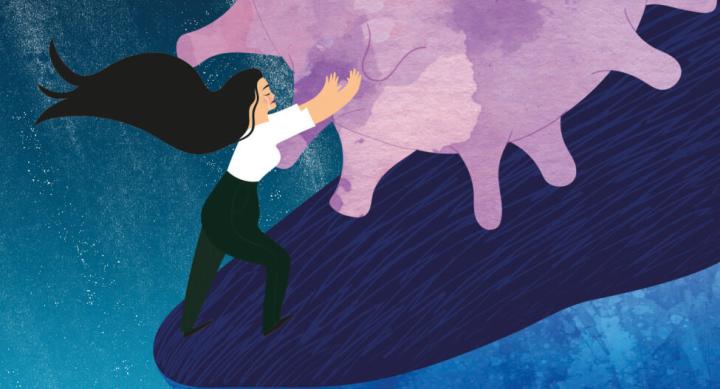
This story first appeared in Alcalde. An excerpt can be viewed below. To read the full story click here.
In mid-March, UT journalism professor Maggie Rivas-Rodriguez had no way of knowing how long the pandemic would last. She certainly didn’t expect that Latinos would come to be overrepresented in the growing number of coronavirus deaths. Her students had left campus for spring break, their plans already altered by the looming threat of the novel coronavirus, and she was wondering how to address it in an editor’s note for the VOCES Oral History Project’s annual U.S. Latina & Latino Oral History Journal.
For 21 years, VOCES has served as the leading oral history archive in the country documenting the experiences of Latinos. While it began as a way to capture the stories of Latino World War II veterans, over the years it has expanded to paint a clearer picture of the Latino experience in the U.S., including the stories of soldiers who fought in other conflicts, civil rights activists, political leaders, and cultural figures. As the organization’s founder and director, Rivas-Rodriguez knew the pandemic would be an important opportunity to continue that work, but with social distancing guidelines in place, she had to rethink her entire operation.
So she and her staff of current graduate students and alumni began planning what would become the VOCES of a Pandemic series—an archive of Latino voices captured during this historic moment, teasing the upcoming project in her newsletter.

